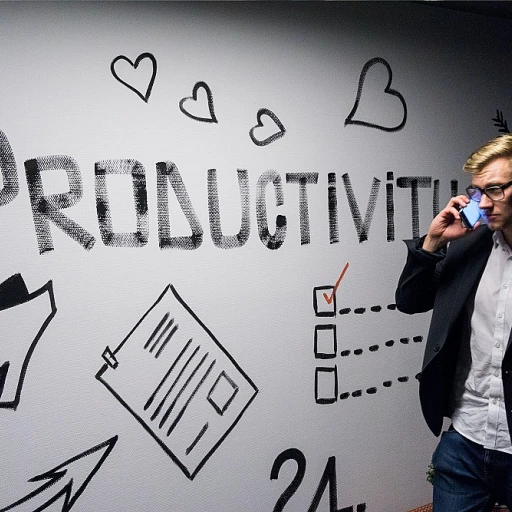
The Role of Team Games in HR Leadership
The Impact of Engaging Activities on HR Success
Team games serve as a strategic asset in HR leadership by transforming traditional work dynamics and promoting a positive organizational culture. The integration of team building activities can break down barriers and foster an engaging environment where employees feel connected and motivated. Incorporating games into your HR strategy offers employees a platform to express creativity and contribute to team groups in unique ways. Participants often find themselves engaged in activities that not only nurture their skills but also emphasize the value of collaboration. Consider how a purpose activity such as a scavenger hunt can lead to meaningful interactions among team members. Within a short span of time, usually just a few hours, employees will work in unison to achieve shared goals, strengthening trust and collaboration in the process. Indoor team games or activities like escape rooms challenge employees to think on their feet and adapt to new situations. Such games not only highlight the importance of teamwork but also build problem-solving skills that are critical in a fast-paced work environment. Understanding the right group size is essential in ensuring that each activity meets its objective. A well-planned game involving the ideal size of people fosters not only an enjoyable atmosphere but also reinforces group unity and cohesiveness. By leveraging the power of team games, HR leaders can set the stage for a workplace where employees thrive together. Exploring pathways to success with YouthBuild is one of the innovative approaches that highlight the significance of team engagement in HR strategies.Building Effective Communication Through Team Games
Strengthening Communication Skills Through Interactive Play
Engaging in team games can significantly enhance communication among team members, a critical aspect of HR leadership. By participating in these activities, employees often find themselves in situations where they need to convey messages efficiently, listen actively, and adapt to the dynamics of the group. These interactions are invaluable as they mimic real work scenarios, helping team members develop effective communication strategies.
Games like the escape room or scavenger hunt require participants to work together towards a common goal within a set time frame. These activities compel individuals to share ideas clearly and offer feedback in a constructive manner, fostering an environment of open dialogue. This not only aids in building trust but also strengthens the overall organizational culture.
The choice of activity often depends on the team size and group size, which may vary from a small group of three to a larger team of twelve or more. The key lies in selecting the right game that aligns with the communication objectives. For instance, indoor team games can be adapted for shorter time frames, such as 30 minutes, making them suitable for busy schedules, while outdoor activities might provide a more extensive experience, lasting several hours.
HR leaders can integrate these great activities into regular team-building sessions to continually enhance communication skills. As participants engage in playful yet purposeful tasks, the lessons learned can directly translate into improved performance back at the workplace. For those interested in delving deeper into how mentoring plays a critical role in developing HR leaders, consider exploring the insights on embracing the role of a mentor.
Enhancing Problem-Solving Skills
Boosting Critical Analysis through Engaging Activities
Organizations are continuously on the lookout for effective strategies to enhance their employees' problem-solving skills. One great way to accomplish this is through team building activities. When team members participate in team games, they often face scenarios that require them to think critically and make decisions under pressure. This is beneficial as it mimics real-world challenges that can occur in the workplace.
A popular method is the escape room activity. In this scenario, teams must work together efficiently within a set time limit to solve puzzles and unlock the room. This type of activity is excellent for engaging participants' problem-solving capabilities while enforcing collaboration. The concept of working against the clock creates a dynamic that pushes employees to think quickly and effectively.
Another enjoyable method is organizing a scavenger hunt. This type of game involves teams searching for specific items or completing tasks within a given timeframe. This activity not only adds a fun element to team building but also fosters strategic thinking and reinforces effective communication between team members.
Both of these examples create a platform where employees can practice and enhance their problem-solving skills in a non-threatening and enjoyable manner. Such activities also inherently promote team collaboration and trust among team groups, laying a strong foundation for tackling workplace challenges together in the future.
If you're looking to incorporate creative solutions to develop these skills within your organization’s HR strategy, you might want to consider learning more about implementing comprehensive strategies that align with your team dynamics and objectives.
Fostering Collaboration and Trust
Creating a Foundation of Trust and Collaboration
In the realm of human resources, fostering collaboration and trust among team members is crucial. Team building activities are a great way to achieve this. When employees engage in group activities, they learn to rely on each other, enhancing their ability to work together effectively. This not only improves team dynamics but also boosts overall productivity.
One effective method is to organize indoor team games that require collaboration. For instance, an escape room challenge can be a fun team activity that encourages participants to solve problems together. This type of game requires team members to communicate and trust each other’s judgment, which is essential for building a cohesive team.
Another popular activity is a scavenger hunt. This can be tailored to suit any group size and can be conducted within the office or at an outdoor location. The purpose of this activity is to encourage team members to collaborate and strategize to complete tasks within a set time limit. This not only builds trust but also enhances problem-solving skills, as discussed in previous sections.
It’s important to consider the team size and the time available when planning these activities. A well-planned team building game can be completed in as little as 30 minutes, making it a convenient option for busy work schedules. By incorporating these activities into your HR strategy, you can create a work environment where employees feel valued and connected.
Developing Emotional Intelligence
Developing Empathy and Emotional Awareness
Emotional intelligence is a crucial skill for HR leaders in guiding and understanding their teams. Many team building activities are designed to enhance this by fostering empathy among team members. Participation in games that require interpreting and understanding emotions can lead to a deeper understanding of how individuals react and feel in different situations.
Using activities such as role-playing scenarios or empathy-building exercises, leaders can better identify the needs and motivations of team members. For instance, a role-play where employees act out different workplace situations helps them view challenges from another person’s perspective, encouraging them to respond more empathetically and thoughtfully.
Moreover, activities like a fun team scavenger hunt compel teams to work in an emotionally aware manner to achieve collective objectives. These games encourage team members to be aware of the emotional dynamics at play, enhancing their ability to communicate effectively within groups.
Having an emotional connection among team members strengthens the overall trust and collaboration of the team, encouraging open communication and a supportive work environment. This underlines the importance of fun team activities in cultivating an emotionally intelligent workforce.













